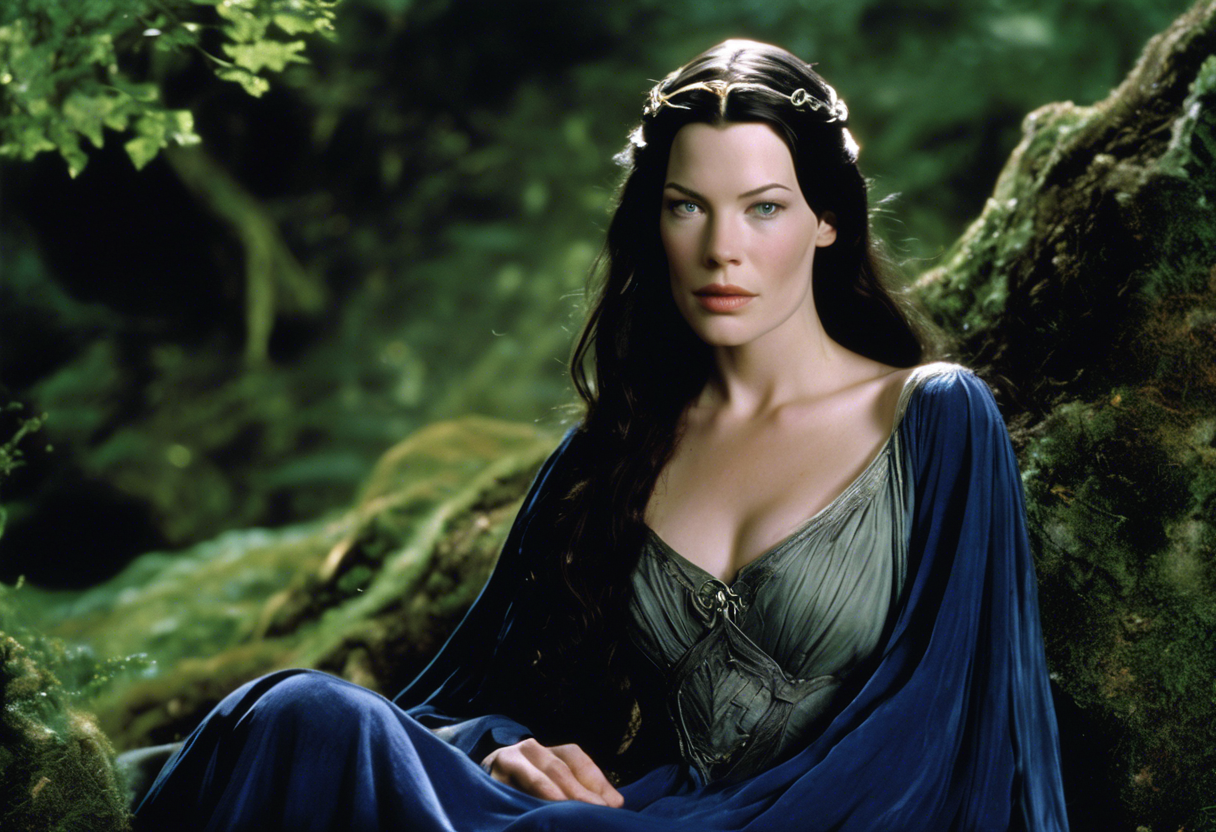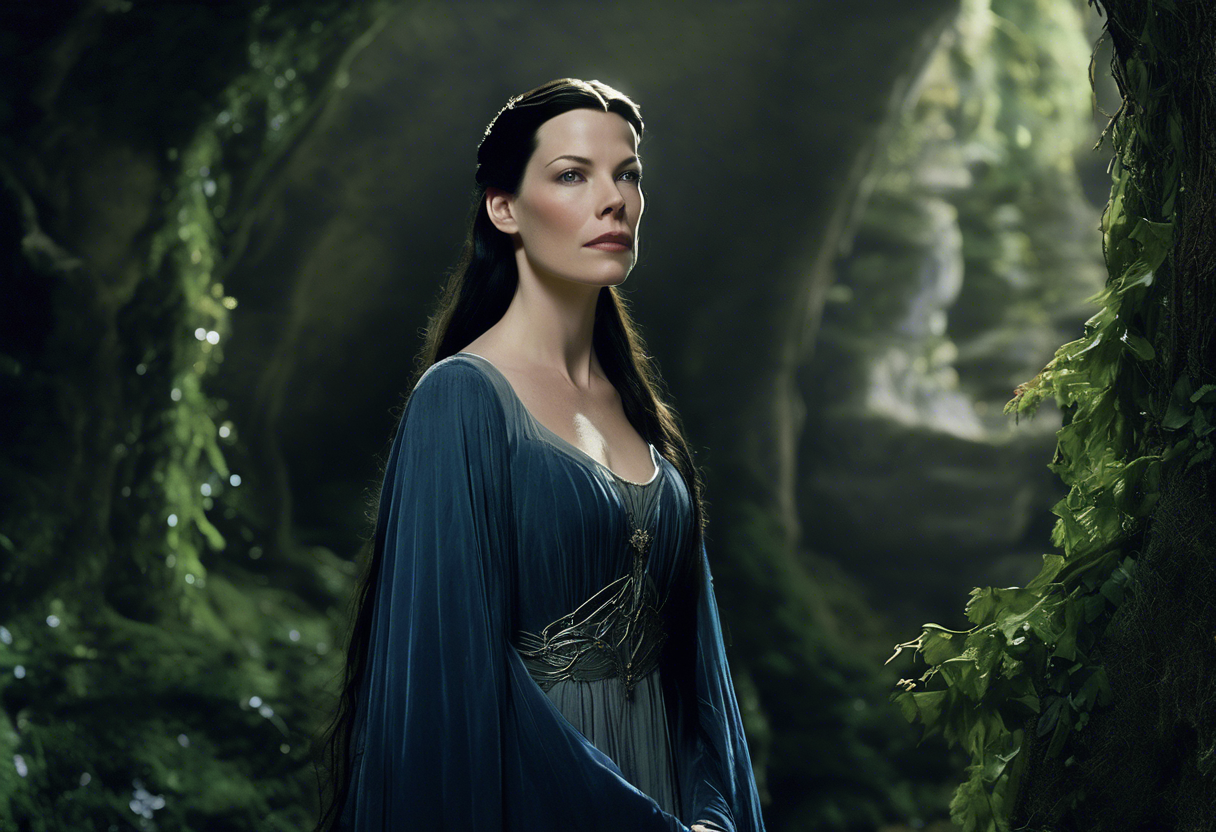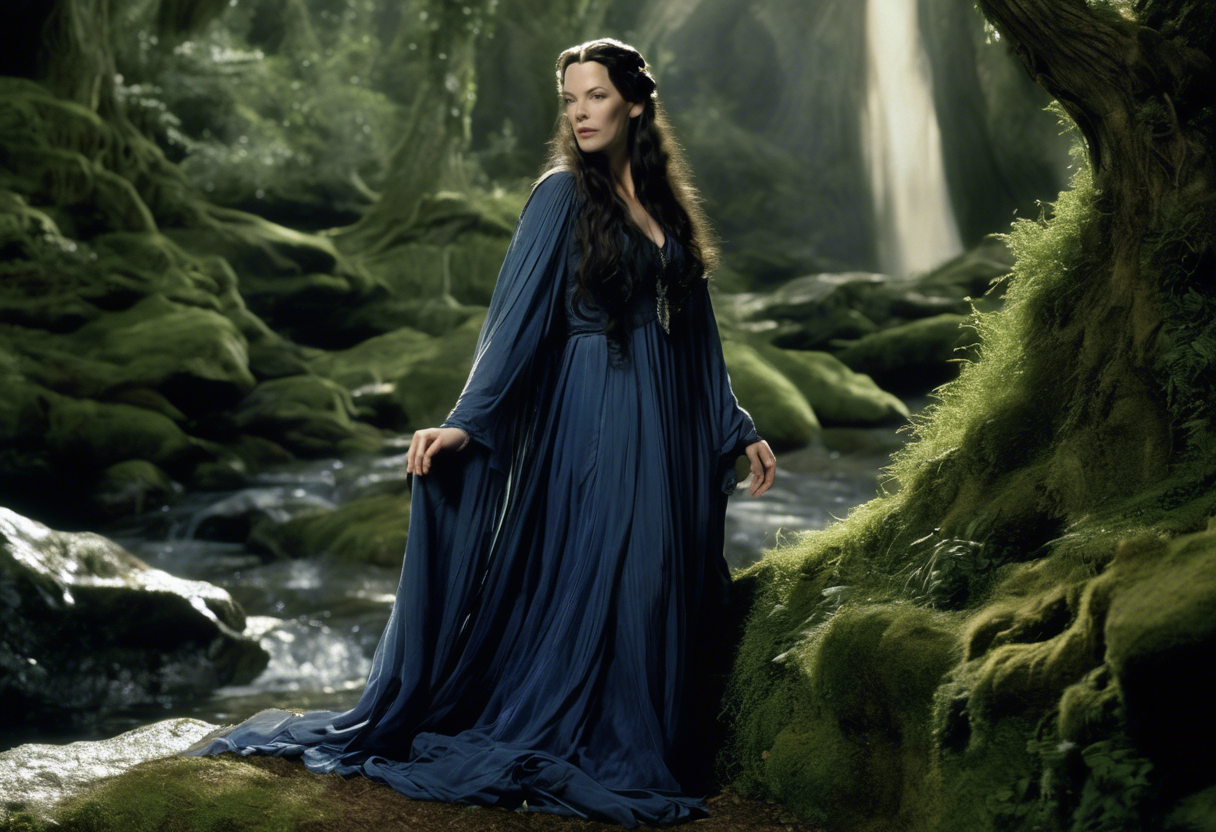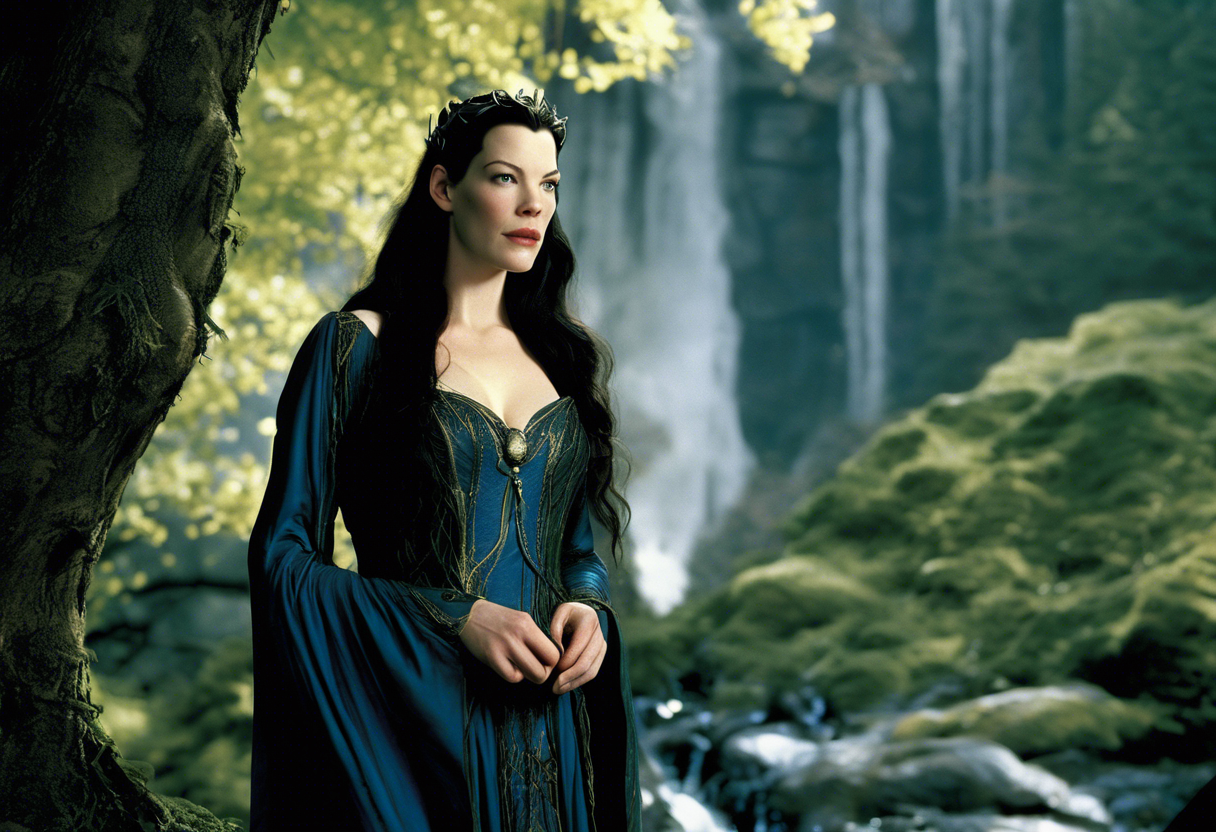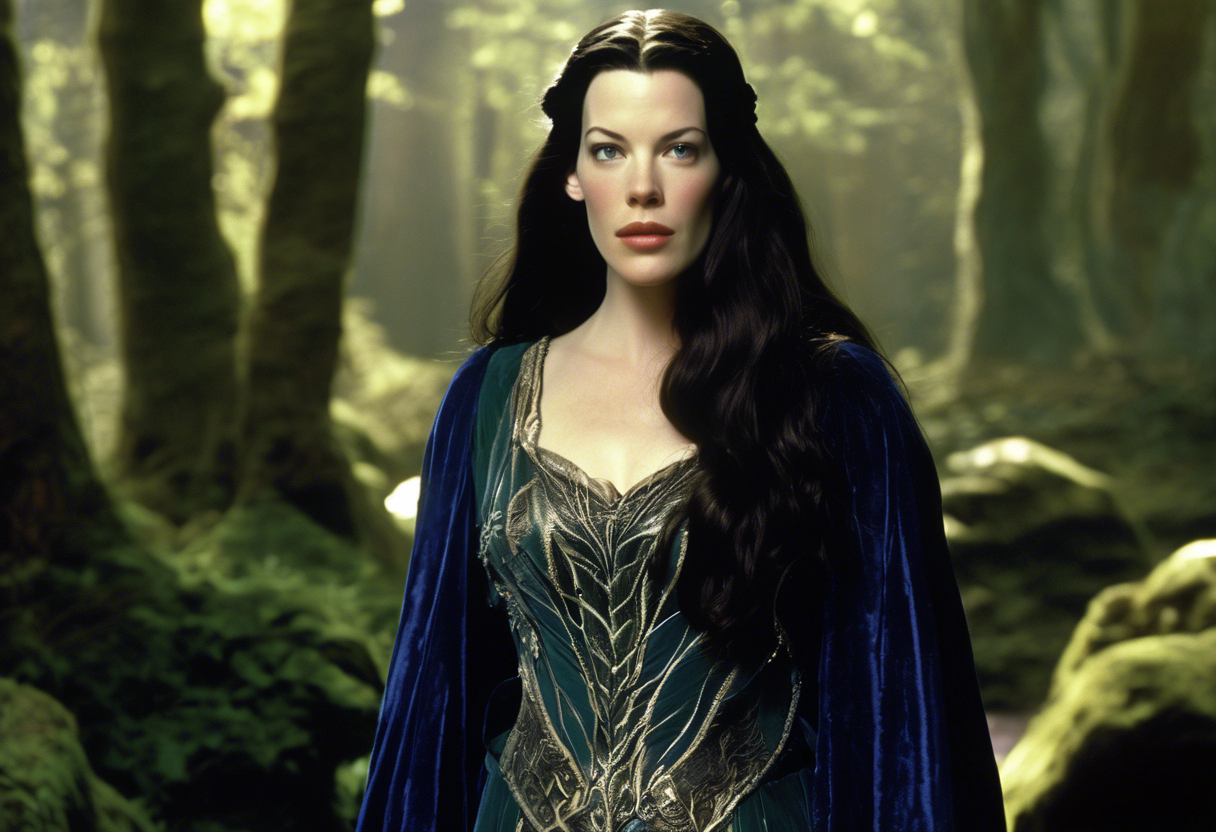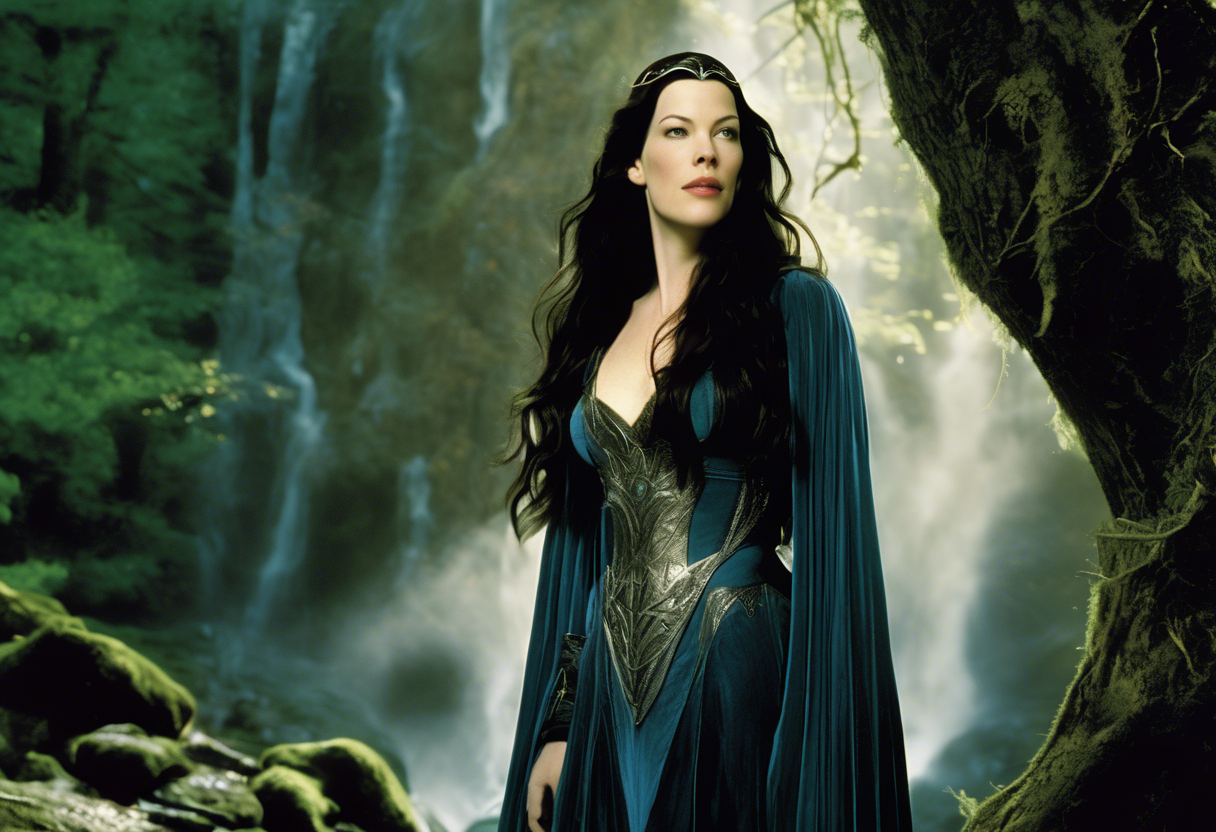Contents
Arwen: The Enduring and Enigmatic Heroine of The Lord of the Rings
Introduction
Arwen, the half-elven maiden, is a pivotal character in J.R.R. Tolkien’s epic narrative, The Lord of the Rings. Created by Tolkien as the daughter of Elrond, the lord of Rivendell, and Celebrían, daughter of Galadriel, Arwen’s story is deeply intertwined with the fate of Middle-earth. Her name, "Ar-wen," meaning "noble maiden" in Sindarin, reflects her noble and compassionate nature[4].
Arwen’s significance extends beyond her physical beauty, often described as the "most beautiful elf" and the "Evenstar" of her generation[4]. Her true beauty lies in her heart, her wisdom, and her unwavering hope and love. In the movie adaptation of The Lord of the Rings, Arwen’s character plays a crucial role in the narrative, influencing key events and characters, particularly Aragorn.
Role in the Story
Arwen’s storyline is marked by profound choices and sacrifices. Born into an elven family, she is faced with the dilemma of choosing between her immortal elven heritage and her love for Aragorn, a mortal man. This choice is central to her character development and the broader narrative of the story.
Arwen meets Aragorn in Rivendell, and their love blossoms despite the obstacles they face. Her decision to renounce her immortality and choose a mortal life with Aragorn is a pivotal moment in the story. This choice is encapsulated in her dialogue with Aragorn, where she says, "I will cleave to you, Dúnadan, and turn from the Twilight. Yet there lies the land of my people and the long home of all my kin"[4].
Throughout the narrative, Arwen’s relationship with Aragorn is a source of strength and hope for him. She encourages him to claim his identity as the rightful king of Gondor, providing him with the hope and courage needed to face the challenges ahead[1]. Her presence, though often behind the scenes, is crucial in Aragorn’s journey towards becoming the King Elessar.
Arwen’s interactions with other characters, such as her father Elrond and her brothers Elladan and Elrohir, highlight her deep connection to her elven heritage and her family. Her love for Aragorn, however, sets her on a path that diverges from the traditional elven way of life[5].
Character Analysis
Arwen’s personality is characterized by her gentleness, wisdom, and love. Unlike many other characters who assert themselves loudly, Arwen’s strength lies in her quiet and compassionate nature. Her words carry weight and truth, and her presence has a profound impact on those around her[1].
Her motivations are rooted in her love for Aragorn and her desire to support him in his quest. This love is not selfish but selfless, as she is willing to give up her immortality for the sake of their relationship. This selflessness is a testament to her inner strength and her ability to make difficult choices[2].
Arwen’s character also embodies the theme of hope. Despite the darkness that looms over Middle-earth, she remains a beacon of hope, encouraging others to persevere. Her statement, "hope is not lost," becomes a rallying cry for those fighting against the Shadow[1].
One of the compelling aspects of Arwen’s character is her relatability. Her struggles with identity, love, and the consequences of her choices resonate deeply with audiences. Her character challenges the conventional notion that strength must be loud and aggressive, instead showing that gentleness and compassion can be equally powerful[1].
Themes and Symbolism
Arwen’s character is rich in thematic and symbolic elements. She represents the unattainable and the perfect, symbolizing the ideal of beauty and love that transcends mortal boundaries[4].
The theme of sacrifice is deeply embedded in Arwen’s story. Her choice to give up her immortality for love symbolizes the ultimate sacrifice one can make for another. This theme is central to the narrative of The Lord of the Rings, where characters frequently face choices that require them to sacrifice personal desires for the greater good.
Arwen also embodies the theme of hope and resilience. In a world threatened by darkness, her unwavering hope and encouragement provide a light that guides other characters through their darkest moments[1].
Cultural Impact
Arwen’s character has had a significant cultural impact since her introduction in Tolkien’s works. In the movie adaptations, her portrayal by Liv Tyler brought her to life in a way that resonated with audiences worldwide.
Arwen has been a subject of both admiration and criticism. Some fans appreciate her as a strong and necessary female character who brings a unique perspective to the story, while others have criticized her role as being too passive or overshadowed by other characters[3].
Despite these varied interpretations, Arwen’s influence on popular culture is undeniable. She has inspired numerous works of fan fiction, art, and literature, and her character archetype has been seen in various other narratives.
Critical Reception
Critics and audiences have had diverse reactions to Arwen’s character. Some have praised her as a symbol of enduring love and hope, highlighting her importance in Aragorn’s journey and the overall narrative[1].
Others have criticized her role, arguing that it is diminished in the movie adaptations compared to the book. This criticism often centers around the perception that her character is too passive or that her storyline is not fully developed[3].
However, Arwen’s character has also been defended as a powerful and necessary part of the story. Her quiet strength and her impact on other characters are seen as essential to the narrative’s emotional depth and thematic resonance[1].
Legacy
Arwen’s enduring appeal lies in her complex and multifaceted character. She represents a unique blend of strength, love, and sacrifice that continues to resonate with audiences today.
In contemporary discussions, Arwen’s character is often cited as an example of a strong female character who challenges traditional notions of strength and power. Her story serves as a reminder that strength can manifest in many forms, including gentleness, compassion, and unwavering hope[1].
Arwen’s influence can be seen in various other works of literature and media, where characters with similar traits and storylines have been developed. Her legacy as a cultural icon continues to inspire new generations of readers, viewers, and creators.
References
- https://thepostcalvin.com/why-arwen-and-eowyn-are-both-strong-and-necessary-female-characters/
- https://www.charactour.com/hub/characters/view/Arwen.The-Lord-of-the-Rings-The-Fellowship-of-the-Ring
- https://discover.hubpages.com/entertainment/How-Arwen-is-the-Most-Underrated-Character-in-the-Lord-of-the-Rings
- https://en.wikipedia.org/wiki/Arwen
- https://fellowshipandfairydust.com/2019/06/05/two-sides-of-womanly-beauty/

